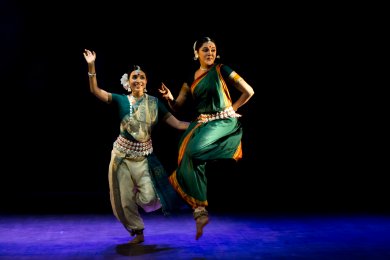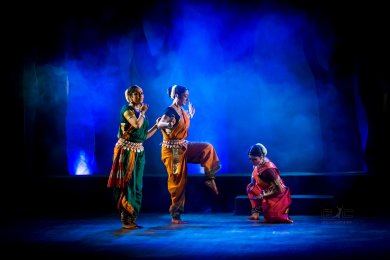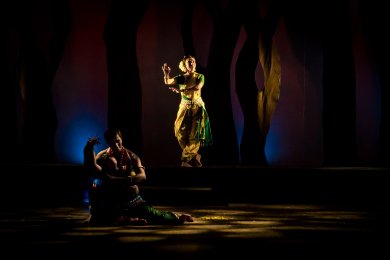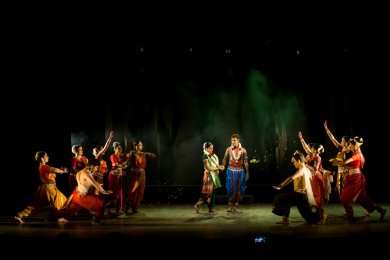
|   |

|   |
Sookshma - Sanjali’s CSR - G Ulaganathan e-mail: ulag_nath@yahoo.com Photos: Giridhar Chandrasekhar May 17, 2016 It was a grand marriage of classical Odissi and Kannada folklore. Bangaloreans were treated to an amazing piece of choreography by the senior disciple of Guru Kelucharan Mohapatra and a well known dancer, teacher Sharmila Mukerjee, founder-director of the 13-year-old Sanjali Centre for Odissi in Bangalore. As part of her institution’s annual festival, early this month she presented an interesting dance drama titled ‘Sookshma’ which also had a powerful social message - protecting the environment and saving trees. Sookshma was adapted from the popular Kannada folktale ‘A Flowering Tree’ by eminent writer A.K. Ramanujan. This has also been seen on celluloid as Cheluvi and was directed by Girish Karnad. The poignant story revolves around an innocent village girl Chenni who loves flowers passionately. Sookshma, an ethereal spirit, is so moved by the little girl’s love for nature because of which she, along with her two sisters, enters the forest every day to pick and play with flowers. The spirit gives a boon to the girl that enables her to transform into a flowering tree and back into a human when two pots of water are poured on her. However, the flowers are to be picked up gently and secretly, the girl is told. 

The girl shares the secret with her sisters and they enter the forest every night where the two sisters pour two pots of water on Chenni who becomes a beautiful tree of fragrant flowers. The sisters pluck the flowers and sell in the village, earning the family a livelihood. Chenni gets married and has a loving husband, who loves the fragrance of flowers. Her husband’s sister too discovers the amazing act and persuades Chenni to be the flowering tree during the day time inside the forest. Chenni obliges, but unfortunately woodcutters get there on the zamindar’s order to collect logs by felling trees. Ignorant of the human-transformed mysterious tree, they axe a branch of the flowering tree. The grief stricken sister-in-law and Chenni’s husband try to bring Chenni back to her human form. She regains her human form but in a miserable, mutilated condition. Sharmila Mukerjee who donned the role of Sookshma in the production, says it took her one year to get the impressive dance drama on stage. “After the music was finalised (music is by the Kolkata based veteran vocalist Debasis Sarkar) things fell in place and we went through a rigorous practice for about three months,” she says. 

The dedication of the entire team was in evidence as there was hardly any wrong step and there was impressive synchronisation with the music. The 70-minute long production had simple props and brilliant lighting to enhance the visual appeal. Sharmila took extreme care to retain the flavour of Odissi while sending out a strong message – on depleting green cover all across the country which is reeling under a severe heat wave. There were quite a few memorable scenes – when the sisters walk through the forest in darkness to fetch water or the brutal action of the woodcutters, to mention a few. The music was so communicative that a lot of interaction between various characters took place through music and there were less words. The lead dancer Abhayalakshmi as Chenni proved her mettle and was very expressive. All the other dancers put up an impressive performance and surely this performance is a feather in the cap for Sharmila’s Sanjali centre. With Sookshma, Sharmila proved that classical arts – be it dance, music or theatre – can be an effective form of highlighting many of the social issues which need the immediate attention of everyone. One looks forward to more such productions from senior dancers in different styles. 

Enough of beating around the bush in mythology. We expect them to actively get into CSR (Corporate social responsibility) through their art. G. Ulaganathan is a senior writer and journalist based in Bangalore. |